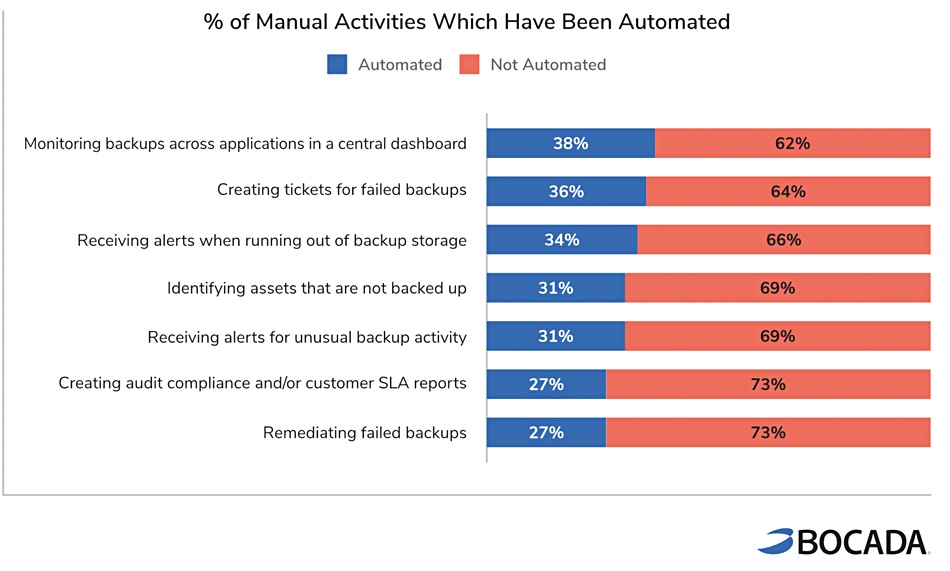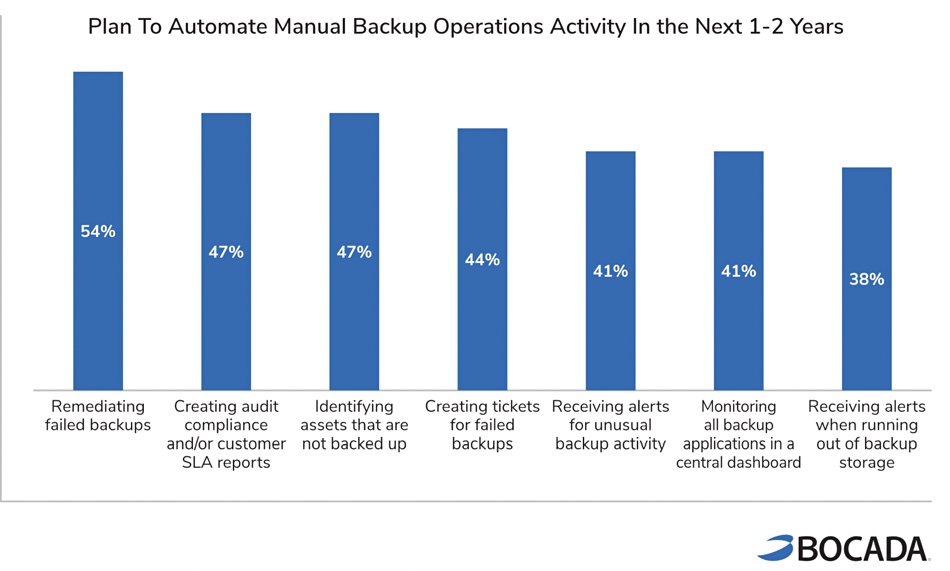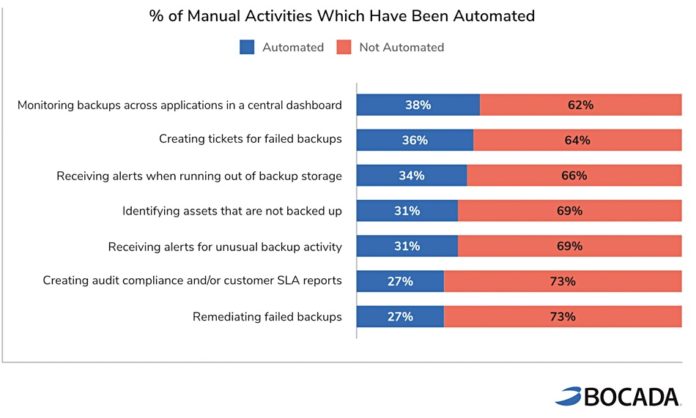Data protection status monitor Bocada says automation is coming to manual backup operations, such as detecting a failed backup operation and doing something about it. About time too.
The company was founded in 1999 and developed backup status monitoring technology, but ran into company direction problems around 2013 when CEO Nancy Hurley left. Four years later, in 2017, it was taken into private equity ownership. Since then it has been extending the range of backup suppliers covered by its product, improving its backup monitoring capabilities, and, as far as we can see, keeping a low profile.
The company has issued a Global Backup Monitoring Trends Report, summarizing survey data from 260-plus IT professionals about backup monitoring trends. We’ve picked out a few points. One is that managing heterogeneous backup suppliers and backup types – such as on-premises, in-cloud, and SaaS app data – is the main backup operations challenge. No surprise there.
Another is that most of the the respondents do not automate manual activities that are increasingly repetitive as data volumes and locations grow. A chart illustrates this:

It also seems quite realistic to us. For example, admins should receive automatic alerts when backup storage runs low, or the backup activity pattern becomes suspicious.
Many of the respondents do plan to add automation to these things, as a second chart illustrates:

Approximately 50 percent of backup professionals anticipate at least some automation implementation, with backup failure remediation (54 percent) being the top choice. Again, that seems common sense.
A move to the cloud was also detected. The report says that while just over half of backup operations take place on-premises today, backup professionals expect over 60 percent of these operations to move to the cloud within the next three years. As organizations transition to cloud-only or hybrid-cloud environments, there is an acknowledgement that backup oversight must transition there as well.
The report says that backup professionals report budget and headcount growth compared to three years ago. This is a significant signal that organizations are placing greater importance on these activities and are positioning teams to better adapt to this shifting backup landscape.
Off the radar
Bocada has fallen off our radar in recent years and we asked CEO Matt Hall about this.
He told us: “While it may appear that things have been quiet with Bocada, that’s far from the case. The company was acquired by a private equity firm in 2017 and a major commitment was put in place to invest in product development.
“Bocada forward invested in building out cloud backup monitoring and reporting capabilities and addressed needs for broader data protection automation by developing automated approaches to ticketing and asset protection monitoring that seamlessly integrate with enterprise incident management tools (e.g. ServiceNow, Jira, BMC Remedy).”
A look at Bocada’s blogs over the past two or three years shows a great stream of new backup supplier and product support news, with a constant outflow of new software versions.
“These investments are reflected in an engineering team that’s three times larger than it was pre-acquisition, and a monthly release schedule based heavily on customer feedback. Over this span of time, Bocada has organically acquired many new enterprise customers, spanning from global MSPs (e.g. HCL, DXC, Datacom) to standalone enterprise accounts (e.g. Merck, Thermo Fisher, GM Financial).
“So, while it may appear things are being re-energized today, the truth is we’ve quietly but steadily been building the product out to be a holistic solution for data protection monitoring.”
Hall is listed on LinkedIn as a Bocada Customer Advocate, having joined the company in 2016. He’s also a general partner at HFM Capital and an Oregon-based investor. LinkedIn says Bocada has 40 employees.








